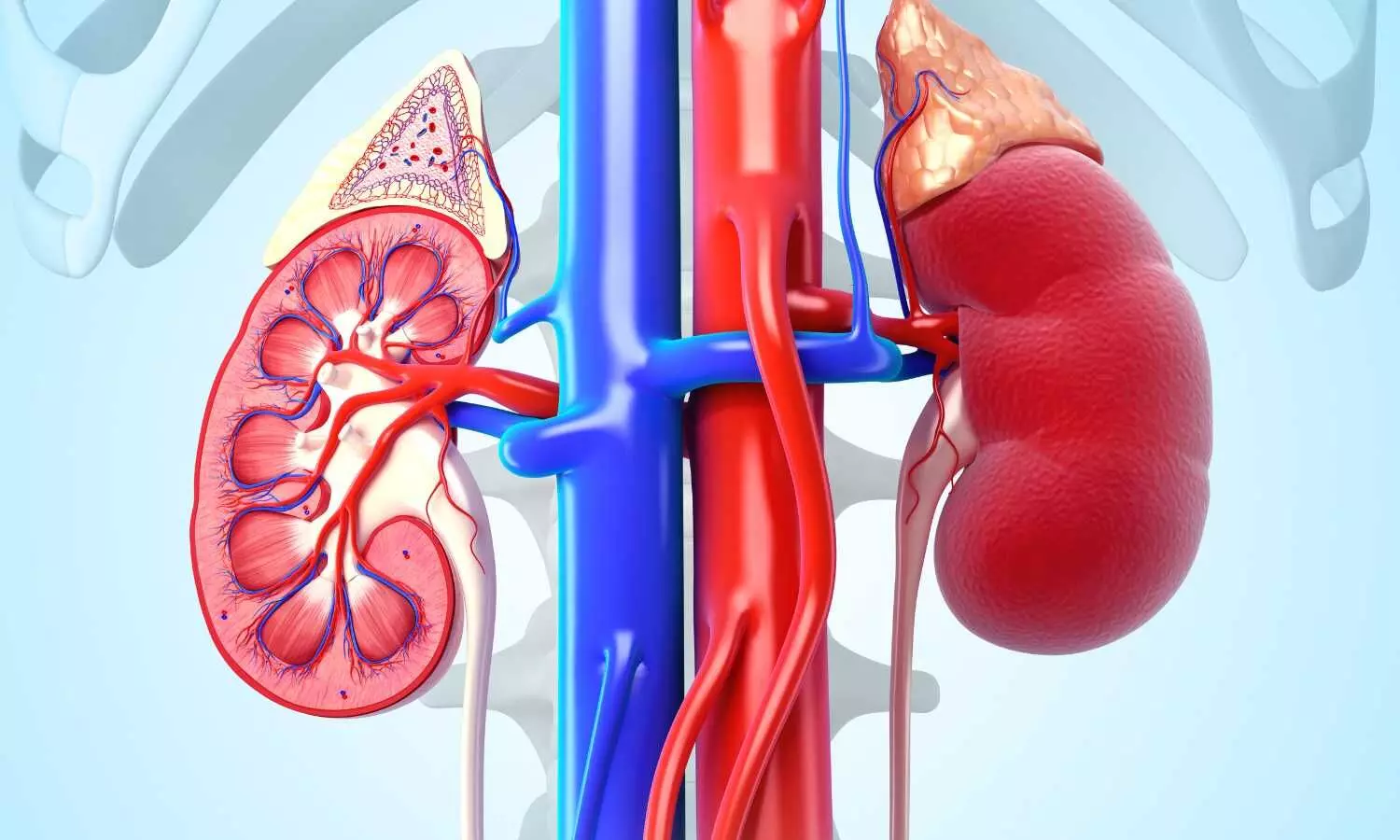Diabetes, Low eGFR Linked to Higher Risk of Death and Kidney Failure: Study
- byDoctor News Daily Team
- 11 October, 2025
- 0 Comments
- 0 Mins

A population-based study of 618,739 adults using electronic health record data, published in theClinical Journal of the American Society of Nephrologyby Katherine R. Tuttle, Lindsey M. Kornowske, Cami R. Jones, Christina L. Reynolds, Radica Z. Alicic, Kenn B. Daratha, Joshua J. Neumiller, O. Kenrik Duru, Susanne B. Nicholas, Meda E. Pavkov, on behalf of the CURE-CKD Consortium, has found that people with diabetes and reduced estimated glomerular filtration rate (eGFR) faced significantly higher risks of mortality and kidney failure. The study highlights how the coexistence of diabetes and impaired kidney function magnifies the risk burden, underscoring the importance of early recognition and proactive management in chronic kidney disease (CKD). The authors emphasize that protecting kidney and cardiovascular health requires an integrated and patient-centered approach, particularly for populations with overlapping metabolic and renal vulnerabilities. The real-world cohort analysis examined outcomes in a large population across diverse clinical settings, making the findings highly relevant to everyday practice. Patients with both diabetes and reduced eGFR consistently showed the highest incidence of death and kidney failure compared to those without diabetes or with preserved renal function. The results reflect the complex interplay between metabolic and renal pathways, where diabetes accelerates kidney injury, and impaired kidney function worsens cardiovascular and systemic risks. By leveraging real-world data, the study provides strong evidence that these patients represent a critical group requiring close monitoring, comprehensive care, and early interventions to prevent adverse outcomes. The authors conclude that clinicians should adopt integrated models of care that address both renal and cardiovascular complications in patients with diabetes and CKD. This includes optimizing blood glucose control, monitoring renal function, managing blood pressure, and incorporating lifestyle modifications. The findings also call for healthcare systems to prioritize coordinated strategies that reduce fragmentation in CKD management. As diabetes continues to rise globally, and CKD remains a leading cause of morbidity and mortality, the study strengthens the case for preventive strategies and patient-centered care to reduce disease burden.
Disclaimer: This website is designed for healthcare professionals and serves solely for informational purposes.
The content provided should not be interpreted as medical advice, diagnosis, treatment recommendations, prescriptions, or endorsements of specific medical practices. It is not a replacement for professional medical consultation or the expertise of a licensed healthcare provider.
Given the ever-evolving nature of medical science, we strive to keep our information accurate and up to date. However, we do not guarantee the completeness or accuracy of the content.
If you come across any inconsistencies, please reach out to us at
admin@doctornewsdaily.com.
We do not support or endorse medical opinions, treatments, or recommendations that contradict the advice of qualified healthcare professionals.
By using this website, you agree to our
Terms of Use,
Privacy Policy, and
Advertisement Policy.
For further details, please review our
Full Disclaimer.
Recent News
Number of steps taken matters more for better heal...
- 22 October, 2025
Immunotherapy after surgery shows potential in pre...
- 22 October, 2025
Study Finds Fatty Acids as Key Driver of Triple-Ne...
- 22 October, 2025
Kiwi fruits May Effectively Relieve Symptoms of Ch...
- 22 October, 2025
Daily Newsletter
Get all the top stories from Blogs to keep track.


0 Comments
Post a comment
No comments yet. Be the first to comment!